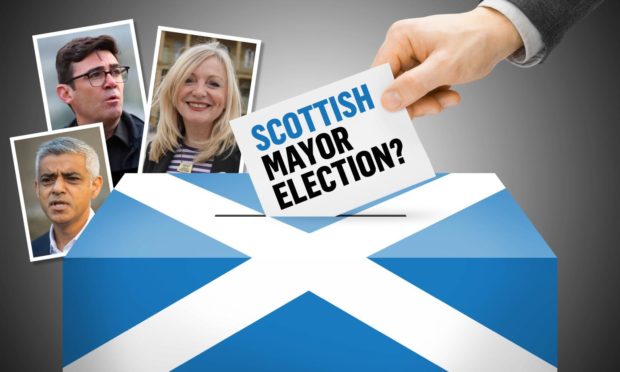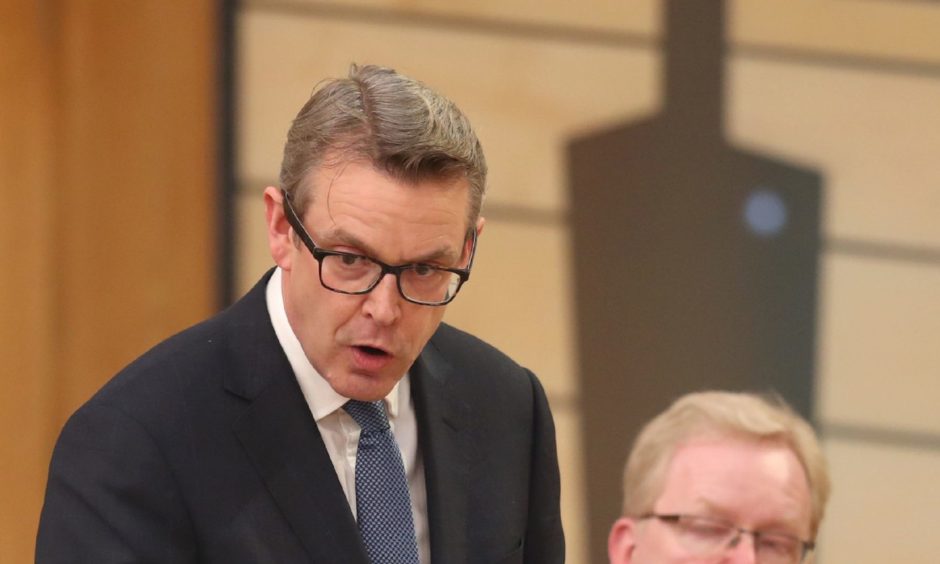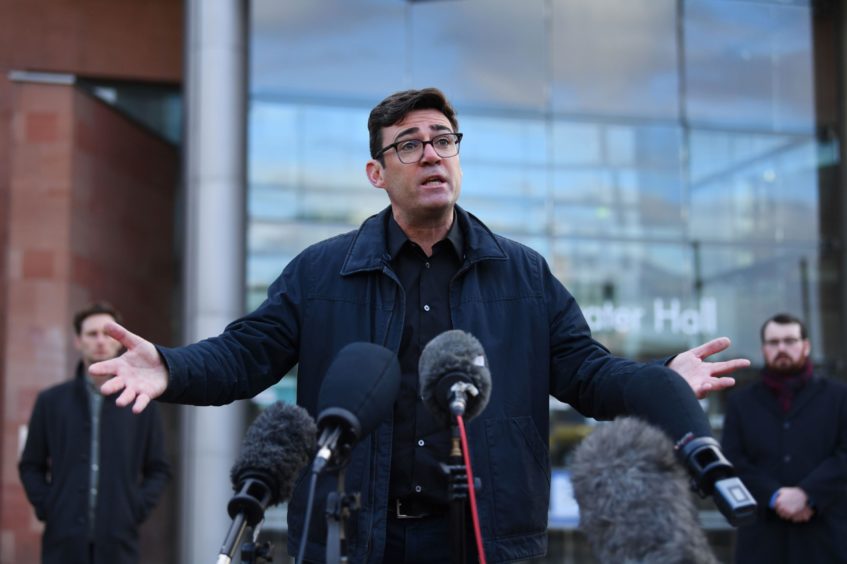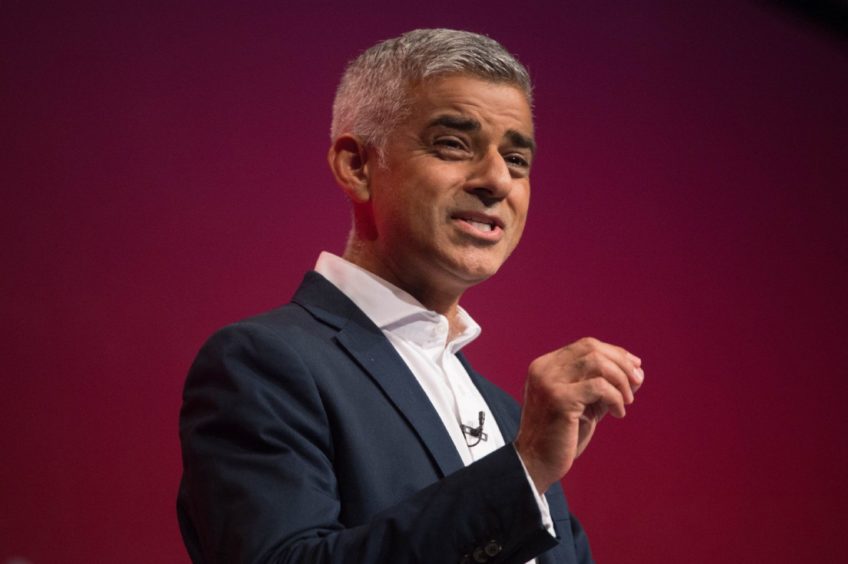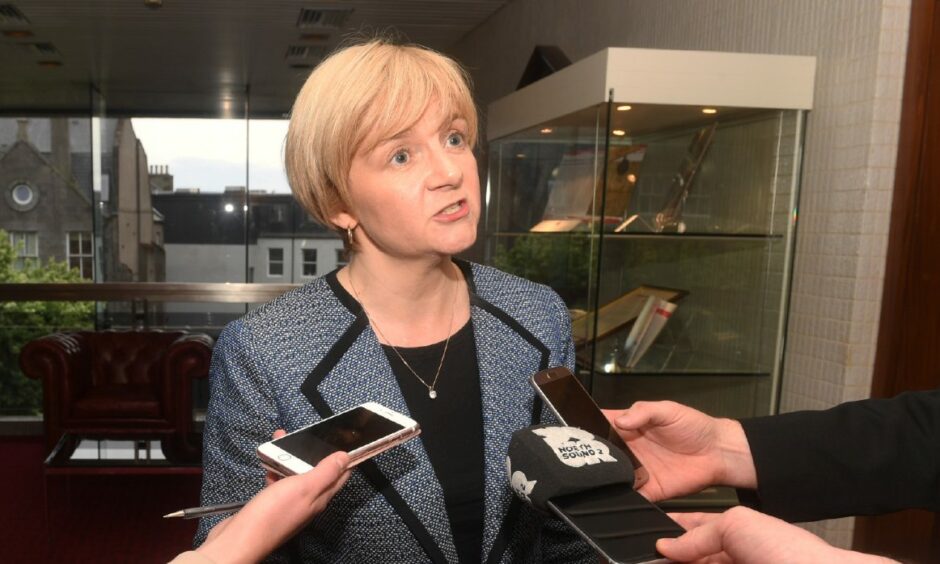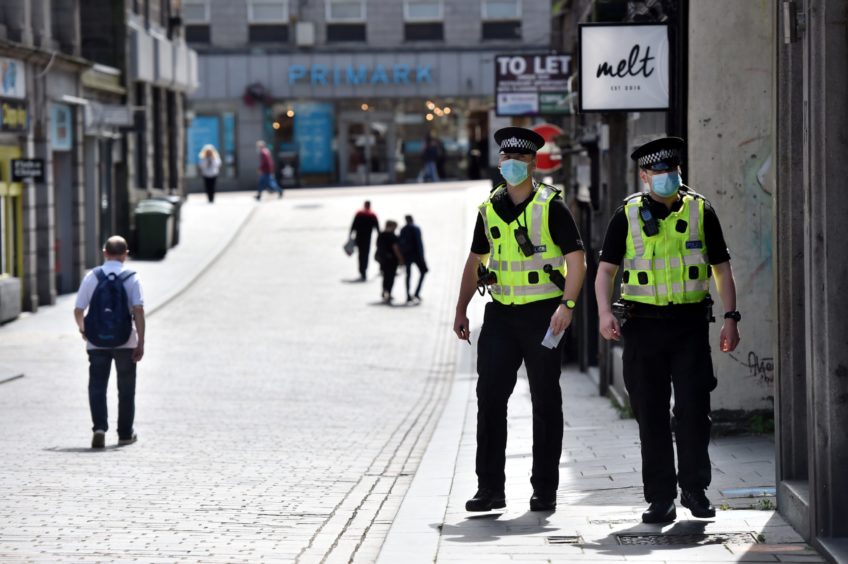Scotland should introduce directly-elected city mayors to help boost economic recovery from the coronavirus pandemic and improve transparency and accountability, a leading expert on the constitution has argued.
Adam Tomkins, a professor at Glasgow University and former Conservative MSP, called on Scottish policymakers to look south of the border to the success of leaders in areas such as London, Greater Manchester and the Tees Valley.
Local authorities in Scotland currently have administration leaders and provosts, the civic head of the council who takes on the largely ceremonial role of attending local events and acting as convener of the council with few formal powers.
In the cities and council areas of Glasgow, Edinburgh, Aberdeen and Dundee, the alternative title of lord provost is used because by virtue of office, the holder also becomes lord-lieutenant – the Queen’s representative in the city.
Both roles are somewhat similar to those carried out by civic mayors and lord mayors in England and Wales but Mr Tomkins believes it is time to look again at having directly-elected city leaders or “metro mayors” in Scotland.
Such roles have been introduced in many cities and regions across England since Ken Livingstone was chosen as the first directly-elected mayor of London in 2000.
Economic boost
Mr Tomkins believes council leaders are often “pulled in too many directions” to carry out an equivalent role and that having directly-elected mayors could “improve our economic position, boost economic growth and improve the health of our democracy”.
He said: “Part of the point of having one of these elected office holders for your city is to attract inward investment, that’s a huge part of what mayors do in America, continental Europe and Australia, and it’s an increasing part of what mayors in England will do.
“In Scotland, you would start in Glasgow and Edinburgh and if it is successful, you would extend it to Aberdeen and Dundee, or you might start with all of those in one go and extend it to places like Inverness and Perth.
“I think rural communities need something different. This is important because we know cities drive economic growth, rural areas don’t.
“Cities need champions, they need czars or focal points, people whose job it is to represent that city nationally and internationally. That’s what mayors do in a way that council leaders can’t because they’re not figureheads in the same way.”
Mr Tomkins pointed to the success of Ben Houchen, the Conservative Tees Valley mayor who was recently re-elected with more than 72% of the vote in a region traditionally considered a Labour stronghold.
Greater Manchester Labour mayor Andy Burnham also won plaudits for facing down the Conservative UK Government over financial support for businesses in lockdown.
Mr Tomkins believes directly-elected mayors carry a stronger voice for their local area, either through challenging central government as a leader in opposition or by working within the system, like Conservative West Midlands mayor Andy Street.
He accepts that because the party political structure is so strong in Scotland, it is “inevitable” that at least the first few generations of directly-elected mayors would be party figures but stressed accountability would not come through the party alone.
He believes successful candidates would face a choice of whether to be the voice for their region or the voice of their party within the region, and insisted those seeking re-election would be compelled to choose the former.
Increasingly centralised
“Whether you do it quietly like Andy Street does or externally like Andy Burnham does, with a big loudspeaker and a publicity campaign, it doesn’t really matter,” Mr Tomkins said. “What matters is that it’s done.
“Scotland is a small place but it’s an increasingly centralised place. Where are the power centres of challenge to the Scottish Government within Scotland? It doesn’t have to be resistance, just challenge.
“There aren’t any. Obviously there are the opposition parties and the courts but this situation isn’t healthy.”
Reform Scotland published a report in March calling on the Scottish Government to endorse the creation of a directly-elected mayor in every council area across the country – something that goes even further than Mr Tomkins’ suggestion.
It argued in the paper, which was published in partnership with the Scottish Policy Foundation, that accountability in local democracy has been eroded since devolution and proposed mayors could work alongside proportionately-elected ward councillors.
A clear figurehead
The report found that when it comes to local authorities, the electorate often does not know who is in charge, and that a council leader can be seen as “a lower-level politician, as opposed to occupying a prestigious role running a city.”
“The advantage of having a directly-elected leader is that it provides a clear figurehead and so can provide dynamism and strengthen accountability and debate,” it said.
“As seen in mayoral elections in England in areas such as London, the West Midlands and Greater Manchester, as well as giving those areas a greater voice, mayors can also stimulate the electorate’s interest in and awareness of local government.
“Mayors can provide strong and effective leadership. In terms of cities they can be a powerful force in driving economic development and progress, while in suburban or more rural areas they can ensure their community is not overlooked.”
The proposals, which won the backing of former first minister Jack McConnell, would also see local councils handed a role in holding mayors to account.
Mixed response
Mr Tomkins said he had received a “mixed response” from speaking to parties about his suggestion but is keen for it not to be seen through a party political lens.
“There are some Conservatives who are pretty sceptical,” he said. “One reaction would be to ask why we would want more directly-elected SNP politicians.
“We’re talking about cities and these are places where the SNP are pretty strong. It’s not guaranteed the SNP would win a mayoral race in Aberdeen or Edinburgh but they would certainly win one in Glasgow or Dundee right now.
“There’s also a concern in the Conservative Party about the rural economy. If we were to make this investment in mayors for urban areas, what are we going to say to our rural constituencies and constituents?”
The introduction of directly-elected mayors was included in Tony Blair’s 1997 election manifesto while in opposition and the number was increased by the coalition government after David Cameron took over as prime minister.
Mr Tomkins believes it is an idea “forged in opposition” and “one of the biggest stumbling blocks” would be that, in his view, a change of government would be required before any such policy could be brought in for Scotland.
He argues that the Scottish Government would be unlikely to warm to the introduction of city mayors as it would mean handing away powers from Holyrood.
Not the answer
However, Mr Tomkins could face a tough job convincing even those keen on reform that his proposal is the right one.
Aberdeen City Council leader Jenny Laing has had no shortage of battles with the Scottish Government and has often spoken about her constituents being overlooked by central government decision-making.
When local lockdown restrictions were introduced in Aberdeen amid an outbreak linked to hospitality in August last year, Ms Laing and her then co-leader Douglas Lumsden fought for increased financial support for local businesses.
The pair also convinced ministers to unlock earlier than they had planned but only, Ms Laing says, after they vowed to make public that health officials had not advised some of the measures the government intended to push ahead with.
Like Mr Tomkins, she believes the country is too centralised and because Scotland has its own parliament, a lot of the duties previously carried out by local authorities have been “sucked into the centre”.
“We have an increasing amount of statutory duties being loaded onto councils and erosion of the autonomy that we do have with policies brought forward by the SNP,” Ms Laing said.
“I don’t actually think directly-elected mayors are the answer. What I think is the answer is to practice what you preach, to devolve powers down to a more localised level.
“If you look over time, you see that erosion of powers at a local level, and I think it’s a disservice to the public. I think if we were to try and roll that back then we would be able to act in the way that we see Manchester and others acting.
“What happened there was that the government really started negotiating directly with Manchester, they brought forward policies they could see had economic benefit and they provided that investment to allow them to move forward.”
‘It’s about personality’
Ms Laing said the public are better served by decisions being made closer to communities but local government has been forced to deal with “chronic underfunding” and “too many caveats” attached to the cash they do receive.
“With elected mayors, it’s about personality,” she said.
“It’s about the public having the perception that they’re putting a lot of power into the hands of one person but in actual fact, the way our system is set up, the actual policy decisions that are made through council and things like that – unless it’s a completely different structure – that person still has to get the support of local councillors to push those policies through.
“It’s a bit like the president of the United States. If his party is not in power, he doesn’t get his agenda through. You have to have collaboration, so I’m not sure that gives you any advantage over the council system we have.”
